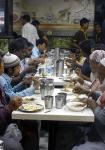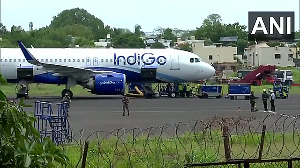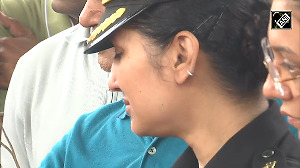Prime Minister Manmohan Singh said the death of medical personnel in the Kabul blast defined the risks Indian medical teams have to face while serving in Afghanistan.
"The medical fraternity in our country has been serving our people under very difficult conditions with great distinction," Singh said on Saturday, inaugurating the annual meeting of the Indian Association of Cardiovascular-Thoracic Surgeons in New Delhi.
"My thought goes to those members of the Indian Medical Mission in Kabul who, while serving the people of Afghanistan, particularly the women and children, used to visit Indira Gandhi Hospital there, perished in the terror attack yesterday (Friday)," he said.
The prime minister said the incident shows the measure of uncertainty that Indian doctors work under and pointed out the risks faced by them while serving the people of Afghanistan.
"It is a measure of the commitment to relief of human suffering that the medical fraternity is known for all over the world," he said.
Taliban carried out coordinated suicide attacks at two hotels in Kabul killing up to nine Indians.
Singh said Indians were very proud of the reputation their doctors have earned both in the country and in every part of the world. "I am one of those who has personally benefited enormously from the expertise and skills of our doctors, especially cardio-thoracic surgeons".
Observing that one of the challenges before India was the increased incidence of heart and blood vessel diseases, Singh said these ailments affect all social classes, with the poor being particularly vulnerable.
Coronary heart disease is also manifesting itself in much younger age groups than in the past, he said.
"There is growing consensus within the medical fraternity that urgent measures need to be taken both from the preventive point of view as well as in relation to cardiac surgical care," he said adding that primary long-term strategy to cope with heart and blood vessel diseases should clearly be preventive in nature.
"We know that many of these diseases can be prevented or at least delayed to a very late age. In recent years, there has been increasing social awareness about health related issues.
"This is a positive development and the growing health consciousness particularly among young people is a big resource for those who manage public health care," he said.
Singh said while preventive efforts are of paramount importance, there will still be many who will need to undergo surgery for correction of their heart or blood vessel disease.
"Whether it is a little infant who needs a hole in the heart closed or a teenager or an adult who needs his blocked blood vessels bypassed, it is the prowess of the surgeon that makes the difference often between life and death," he said.






